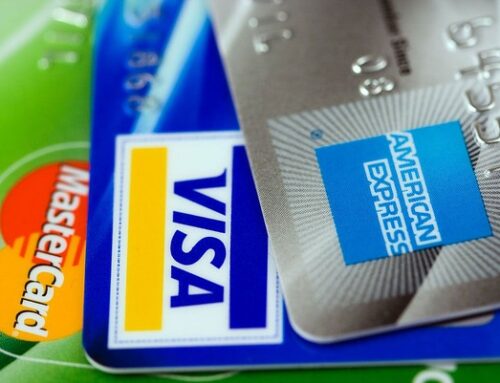Credit card applications are straightforward, but you should meet some financial requirements to get approved for the best credit card offers. A credit card is like a sharp knife: It may either be invaluable equipment or a dangerous weapon. Used responsibly, a credit card can make it simple to manage your monthly cash flow and track expenses.
Thanks to credit card grace periods, using a credit card may be totally free if you pay back all of your charges every month. And as a bonus, few credit cards pay cash back or other rewards.
If you are an adult with a steady job and a track record of on-time payments to student loans and car loans, you should not have an issue getting a credit card. This week, Masters Credit Consultants wants to teach you how to apply for a credit card so you will get approved. If you need assistance or prefer an expert credit repair consultant to help you instead, sign up today for your free credit analysis.
Check your actual credit report
To your credit score, it may be helpful to get a copy of your general credit report. Fortunately, you can get a free copy of your credit report from all 3 major credit reporting agencies Experian, Equifax, TransUnion for free, once per year. You just need to visit AnnualCreditReport.com for getting a copy of the credit report for free. Simply visit the website and enter all the details, and you will soon see all of the info that is shared on your report. If everything is accurate, you do not need to worry about it. If you find a mistake, however, you need to do what you can to have it fixed right away.
Make all of your monthly payments on time.
If you take a close look at how your FICO score is determined, you will notice that the factor playing into your credit score is payment history. Actually, your payment history makes up a whopping 35 percent of your credit score. If you want to improve credit before applying for a rewards credit card and want to keep it in the best shape for the long haul paying all of your bills on time is the great and easiest way to do it. On the contrary, missing a payment or paying late can cause havoc on your credit score. You need to avoid making late payments.
Pay down your debts
Another key factor in your credit score is credit usage. This term, usage, is used to describe how much money you owe in relation to credit limits. While using some of your available credit is a good thing, running up too many balances is frowned upon and reflects negatively on your credit score. Most experts recommend keeping your credit usage below 30 percent meaning, if your credit limit is $1,000, you should not carry a balance larger than $300. When you have used up more than 30 percent of your overall credit limit, it makes you look riskier to lenders and can cause your credit score to drop. When you pay off debt and get your usage below 30 percent, on the other hand, your credit score will have a good chance to surge and it does so right away. So, if your credit score is borderline, pay down any outstanding balances before applying for a credit card to give yourself a good chance of getting approved.
Consider a secured credit card
If your credit score is not sufficient to qualify you for a traditional credit card, you need to consider a secured credit card to get the ball rolling. Unlike unsecured credit cards that extend you a line of credit, secured cards provide credit that’s tied to a cash deposit you put down. For instance, several secured credit cards offer a $500 credit limit but need a $500 deposit for getting started. While this cannot look beneficial at first, secured credit cards are frequently the way for people with bad credit or no credit to increase their credit score. Once you start using a secured card responsibly, paying it off every month, your credit score will improve, you can upgrade your card to an unsecured credit card and get your deposit back. If the credit score gets improved, you can qualify for a top rewards credit card after using a secured card. It depends on your condition, your aims, and how much your score improves.
Include all income in the application
Issuers consider your credit scores an indicator of creditworthiness, but scores do not reflect your income. Card issuers utilize the income to calculate your debt-to-income ratio, which determines your capability to make payments. Change your ratio by either raising income or reducing debt. If you are earning money from other sources as well, then include them all on your application. As long as you are 21 or older, you can involve household income, income from your spouse and partner, on your credit card application. Resist the temptation to overstate your income. If an issuer finds that you knowingly offered false info on your application, you may be charged and convicted of credit card fraud. Being unemployed does not automatically disqualify you from getting a credit card.







Leave A Comment